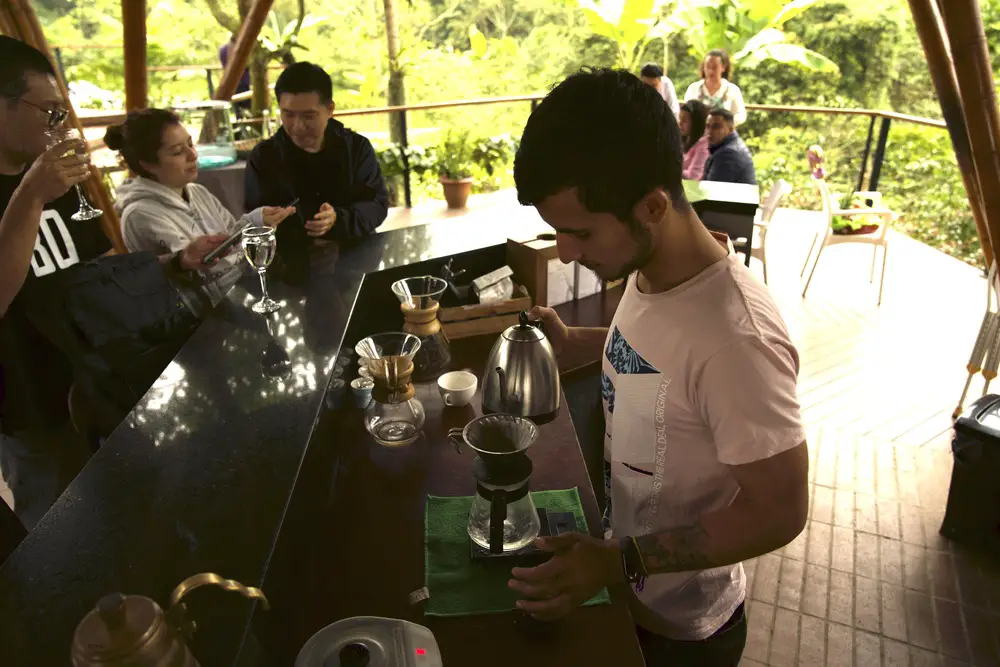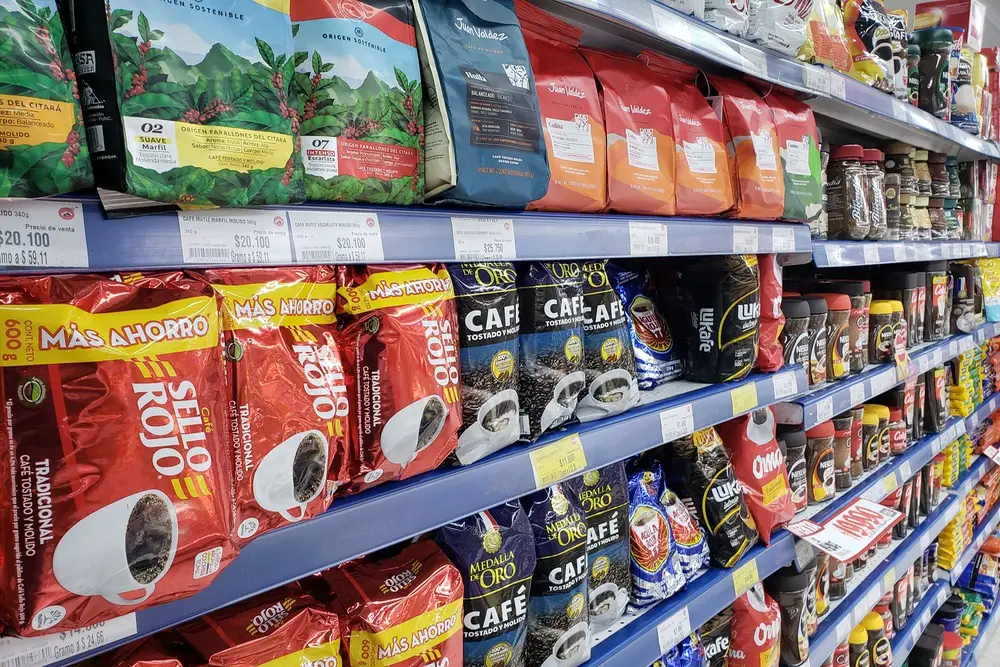Caffeine is an alkaloid found in many of the world’s most popular beverages, such as coffee and tea. Caffeine is a substance that gives us energy and a sense of well-being; but it is also addictive.
However, caffeine is not a harmless substance and in excess can be harmful to health, especially for people with cardiovascular diseases such as high blood pressure.
Table of Contents
Caffeine and high blood pressure
Caffeine is a substance that can cause an increase in blood pressure because it has a vasoconstrictive effect. So, when you consume caffeine, your arteries narrow, causing the pressure in the vessels to rise for a short time.
For example, many people experience an increase in blood pressure within 30 to 60 minutes of drinking caffeinated beverages. However, you shouldn’t worry as the blood pressure fluctuations are temporary and your blood pressure will usually return to normal after 3 to 4 hours.
In addition, caffeine can also increase blood pressure by activating the adrenal glands, causing them to release adrenaline. Adrenaline causes your heart to pump blood faster and harder, causing your blood vessels to constrict, causing blood pressure to rise.
Is Moderate Caffeine Consumption Safe for People with Hypertension?
A study showed that moderate caffeine consumption is safe for people with high blood pressure. Another study concluded that daily coffee consumption of 2 to 4 cups (equivalent to 200 to 300 mg of caffeine) has no significant impact on people’s blood pressure.
300 mg of caffeine increases systolic pressure by 8 mmHg and diastolic pressure by 6 mmHg in both hypertensive and non-hypertensive subjects. In addition, the changes in blood pressure caused by coffee disappear after about 4 hours.
In contrast, several studies have found that regular coffee consumption does not raise blood pressure because people develop a tolerance to caffeine.
This means that the same amount of caffeine no longer produces the same effects in the body over time. So, it seems that only people who rarely consume caffeine should expect a significant increase in blood pressure.
However, if you have a family history of high blood pressure and cardiac arrhythmia, check with your GP to make sure you’re on the safe side when taking caffeine.
Long-term effects of caffeine on blood pressure
As mentioned earlier, while coffee consumption increases blood pressure, this increase does not appear to last long.
Therefore, one of the conclusions of this study is that hypertensive patients who drink coffee regularly have a lower risk of developing complications of their disease.
Beneficial effects of caffeine on cardiovascular health
Other research concluded that consuming 3 to 5 cups of coffee per day is associated with a 15% reduced risk of heart disease and a reduced chance of premature death in healthy people.
Coffee contains numerous bioactive compounds that have antioxidant effects and can reduce oxidative stress in the body.
Additionally, some researchers are hypothesizing that coffee’s health benefits may outweigh caffeine’s possible negative effects, especially with regular coffee consumption.
However, it should be noted that more research is needed to gain a better understanding of the long-term effects of caffeine on human health.
So, at least for now, drinking coffee every day seems safe and even helpful for maintaining good health.
But what is high blood pressure?
Hypertension is a disease in which blood pressure remains high. So, blood pressure is the force that blood exerts against the walls of the arteries as it flows through the body.
So, this pressure depends on the amount of blood pumped by the heart and the resistance to blood flow in the arteries. Thus, the arteries of a person suffering from high blood pressure become narrow and stiff. Because of the sustained increase in pressure, the blood vessels lose their elasticity, which leads to increased resistance to blood flow.
Measurement of blood pressure
Two numbers are used to measure blood pressure; the first is called the systolic blood pressure and the second is called the diastolic blood pressure.
Systolic
Systolic blood pressure is the measurement of the pressure in the arteries as the heart pushes blood into larger vessels such as the aorta.
Diastole
This number indicates the pressure in the arteries when the heart is resting between beats to circulate oxygen-rich blood.
Normal blood pressure values
The first thing you should know about blood pressure readings is that they are presented as follows:
- The first number refers to the systolic pressure and the second to the diastolic pressure.
- A reading of 110/60 means that the systolic pressure is 110 and the diastolic pressure is 60.
- According to the American College of Cardiology and the American Heart Association (AHA), normal blood pressure is between 90/60 mmHg and 120/80 mmHg.
- Therefore, when using a sphygmomanometer (sphygmomanometer), blood pressure readings below 90/60 mmHg that persist for a long period of time are considered low blood pressure or hypotension.
- Conversely, readings above 130/90 mmHg that remain constant, i.e. do not decrease at rest, are considered hypertension.
Effects of high blood pressure
It’s normal for blood pressure to rise after exercise, a high-salt meal, or a stressful situation.
In most cases, the pressure returns to normal levels when resting, drinking water or meditating, for example.
The real problem, however, is that the increase in blood pressure lasts for a long period of time and does not stop on its own.
Over time, high blood pressure causes the heart to work harder, which in turn increases the risk of other associated diseases, such as heart disease. B. heart disease, increased:
- Heart attack
- Stroke
- Heart failure
What are the symptoms of high blood pressure?
The symptoms of high blood pressure are often non-specific, ie it is difficult to assign them to a specific cause. However, the main problem with high blood pressure is that it usually does not cause any symptoms until the levels are too high.
So, some of the symptoms most commonly associated with high blood pressure are as follows:
- Dizziness
- Palpitations
- Strong headache
- Blurred vision and, in some cases, people suddenly see “colored lights”
Should you avoid caffeine if you have high blood pressure?
For most people, moderate coffee consumption does not have a significant effect on blood pressure or heart disease risk.
Even those who have already been diagnosed with high blood pressure and continue to drink coffee do not appear to have any negative effects on their health provided they have good eating habits and exercise regularly.
However, excessive consumption of coffee or other caffeinated beverages has negative health effects.
More than 400 mg of caffeine per day can cause sustained increases in heart rate and blood pressure, particularly in individuals who are highly sensitive to the alkaloid.
However, if you don’t drink coffee, black tea, or soft drinks regularly, you should wait until your blood pressure stabilizes before drinking them.
If you don’t get enough caffeine, you’re likely to be more sensitive to its effects.
Decaffeinated coffee
If you’re a die-hard coffee lover, decaffeinated coffee might be a good choice. Although decaffeinated coffee contains caffeine, the percentage of the alkaloid in this type of coffee is minimal, not exceeding 3%.
However, there are other substances in coffee and tea that can increase blood pressure. In general, however, it can be said that decaffeinated coffee is more helpful for people who are very sensitive to caffeine than for people with high blood pressure.
In other words, as long as consumption is moderate, decaffeinated or regular coffee is unlikely to have a harmful effect on blood pressure.
When should you stop drinking coffee or other caffeinated beverages?
If you are very sensitive to caffeine or have consumed too much caffeine, you are likely to experience symptoms such as:
- Insomnia
- Fears
- Dizziness
- Headache
- Tremble
However, the problem with these symptoms is that they are very similar to the symptoms a person experiences when their blood pressure is very high.
So, if you experience one or more of these symptoms after consuming a caffeinated beverage, you should stop drinking and see your doctor to find out what to do.



